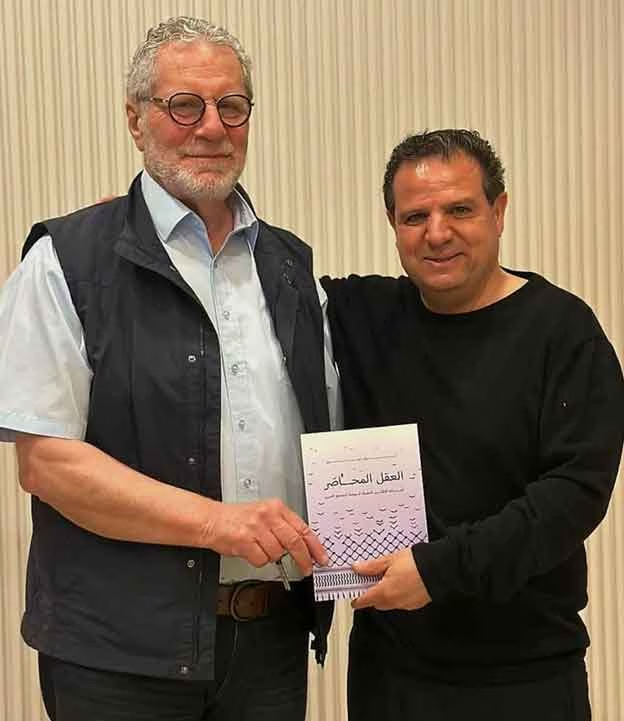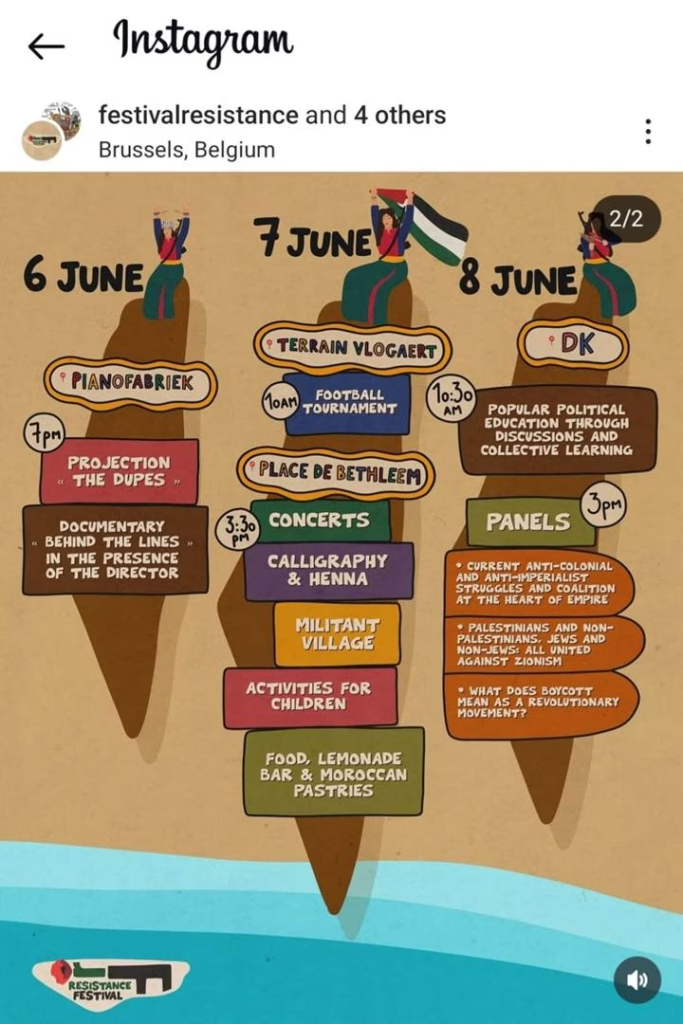
In a couple of days, Masarat, the Palestinian Center for Policy Research and Strategic Studies in Ramallah, will host Professor Marwan Dwairy, a Palestinian researcher in cross-cultural psychology at Haifa University and author of The Trapped Mind, a book about “the patterns of thinking that hinder the renaissance of Arab society.”
Dwairy believes that the Arab mind suffers from thirteen dominant “psycho-cultural” barriers that hinder progress, particularly in Palestinian and broader Arab contexts. While getting ready to attend the “Resistance Festival” in Brussels (June 6–8), I couldn’t but wonder at how off the mark his generalizations are in describing the minds of today’s Palestinian youth both in the diaspora and in the Gaza Strip and the West Bank. I felt he might be describing so-called “Israeli Arabs” like himself, products of an Israeli education.
Dwairy favors interpretations of Palestinian nationalism that emphasize the psychological and ideological barriers hindering the Palestinian struggle for liberation. His work suggests that the Palestinian mind has been “trapped” by certain patterns of thinking that impede progress and renewal. This perspective aligns with interpretations of Palestinian nationalism that focus on internal reform and the need to overcome mental and ideological obstacles. They ignore the diverse political ideologies within the Palestinian movement, including secular, Islamic, and leftist factions. By not giving equal weight to these different perspectives, Dwairy presents a skewed view of the Palestinian struggle.
Dwairy’s mind afflictions include “Victimhood Mentality,” characterized by a pervasive sense of being perpetually oppressed by external forces (e.g., colonialism, occupation, global trends), which absolves individuals/groups of agency or self-criticism. For example, he finds we blame all societal failures on Israel or Western imperialism while ignoring internal corruption, poor governance, or cultural stagnation.
In avowing the above, Dwairy grossly underestimates the structural and external oppressions of colonialism, occupation and global inequality that continue to shape Arab societies. By attributing stagnation primarily to “trapped minds,” he seems to echo colonial narratives that blame victims for their oppression. In the case of Palestine, Israel’s occupation and Western interventions are the primary obstacles to Palestinian development, not cognitive patterns like victimhood or fatalism.
To me, the book’s push for self-criticism is politically naive, especially under authoritarian regimes where dissent is punished. It’s clear to me that “taboos on introspection,” for example, often stem from survival instincts, not cultural pathology. For example, labeling critiques of resistance movements as “betrayal” may reflect legitimate fears of undermining collective struggle, not cognitive rigidity, as he claims.
Briefly, Dwairy’s other mind warps are as follows: Tribalism/Sectarianism, Sacralization/Taboo Thinking, Binary Thinking, Emotional Reactivity, Fear of Change, Dependency on External Saviors, Fatalism/Passivity, Taboo on Self-Criticism, Conspiracy Mindset, Cultural Superiority Complex, Blind Glorification of History, Rejection of Accountability.
Dwairy’s analysis homogenizes diverse Arab cultures, ignoring regional variations (e.g., Gulf vs. Levant) and historical contexts. Tribalism or binary thinking manifest differently in, say, Morocco versus Iraq, and cannot be uniformly pathologized. It’s also possible to argue that collectivist cultural traits (e.g., tribal solidarity) have been adaptive strategies against fragmentation under external threats.
It is true that Palestinian nationalism is interconnected with the wider Arab world’s quest for renewal and self-determination. The Palestinian cause is not just a national struggle but also a part of a larger regional movement towards liberation and progress. But Dwairy’s focus on “mental liberation” sidelines material deprivation such as poverty, sanctions and resource wars as drivers of stagnation. How can anyone think that “dependency mindsets” and not Israeli rapaciousness constrain Gaza’s economic agency? Without structural change, aid dependency imposed by geopolitical realities will inevitably persist.
Given the themes he explores in “The Trapped Mind,” it seems to me that Marwan Dwairy’s own mind can be said to be “trapped” in a specific ideological framework. He fails to acknowledge the diversity of political ideologies within the Palestinian movement and may be constrained by his own preconceptions. Perhaps he is also expressing the mindset of “Israeli Arabs,” as might be reflected in Ayman Odeh’s endorsement of the book. Odeh is Chairman of the Democratic and Arab Front for Change and a member of the Israeli Knesset.

Caption: 77 Years of Struggle for Liberation and Return: Resistance Festival in Brussels, June 6–8, Brussels, Belgium
Dwairy’s analysis reduces the Palestinian resistance to a mere reaction to Israeli oppression, failing to acknowledge the agency and strategic choices made by diverse Palestinian leaders and movements over the decades, all of which were, and continue to be, brutally suppressed. Dwairy’s oversimplification and lack of historical depth distorts the nuanced and multifaceted nature of the Palestinian struggle, which includes political, military, diplomatic and revolutionary strategies.
Additionally, Dwairi’s reliance on Western psychoanalytic theories like Freud’s and systems theory clashes with Islamic or indigenous epistemologies that value communal ethics over individual rationality. Arab intellectual traditions (e.g., Mu’tazila rationalism) already integrate critical thought, albeit differently from Western models. Wider intellectual debates in Arab thought include traditionalists, who reject “cultural inferiority” narratives, stressing resilience under oppression; materialists, who prioritize economic/geopolitical analysis over cultural psychology; and Islamic reformers, who adhere to faith-based frameworks for renewal.
Palestinians are not passive victims of Israeli policies; rather, they are active agents in their own liberation struggle. Their culture, identity, and social structures influence their resistance and resilience.
Subscribe to Our Newsletter
Get the latest CounterCurrents updates delivered straight to your inbox.
__________________
Rima Najjar is a Palestinian whose father’s side of the family comes from the forcibly depopulated village of Lifta on the western outskirts of Jerusalem and whose mother’s side of the family is from Ijzim, south of Haifa. She is an activist, researcher, and retired professor of English literature, Al-Quds University, occupied West Bank.









































